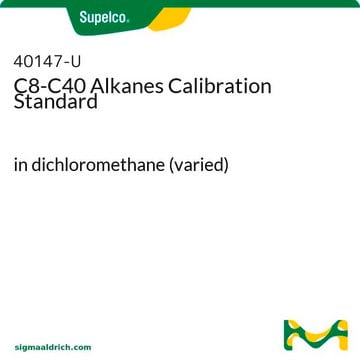50439
Perchloric acid
0.01 M HClO4 in water (0.01N), eluent for IC
Synonym(s):
Perchloric acid solution
About This Item
Recommended Products
Quality Level
concentration
0.01 M HClO4 in water (0.01N)
technique(s)
ion chromatography: suitable
SMILES string
OCl(=O)(=O)=O
InChI
1S/ClHO4/c2-1(3,4)5/h(H,2,3,4,5)
InChI key
VLTRZXGMWDSKGL-UHFFFAOYSA-N
Looking for similar products? Visit Product Comparison Guide
General description
Application
Linkage
Preparation Note
related product
Storage Class Code
12 - Non Combustible Liquids
WGK
nwg
Flash Point(F)
Not applicable
Flash Point(C)
Not applicable
Personal Protective Equipment
Regulatory Listings
Regulatory Listings are mainly provided for chemical products. Only limited information can be provided here for non-chemical products. No entry means none of the components are listed. It is the user’s obligation to ensure the safe and legal use of the product.
JAN Code
50439-1L:
50439-BULK:
50439-VAR:
Choose from one of the most recent versions:
Already Own This Product?
Find documentation for the products that you have recently purchased in the Document Library.
Our team of scientists has experience in all areas of research including Life Science, Material Science, Chemical Synthesis, Chromatography, Analytical and many others.
Contact Technical Service



